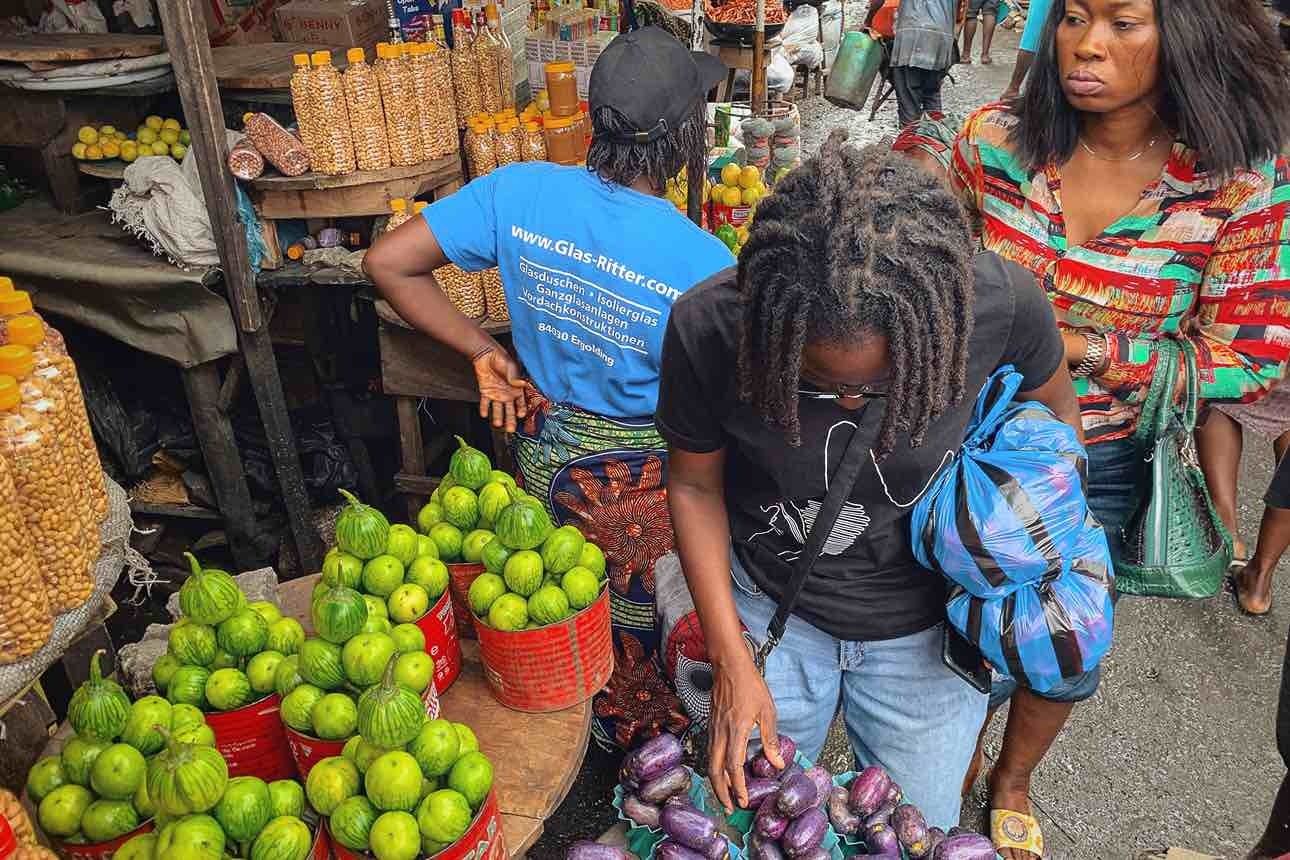
A woman haggles over food prices at a Lagos market. Nigeria’s central bank is grappling with a dilemma: whether to hike interest rates to tame soaring inflation or keep them low to stimulate the economy. Photo by Samuel Okocha/234Digest
The new governor of the Central Bank of Nigeria (CBN), Yemi Cardoso, has a tough decision to make when he chairs his first monetary policy meeting on November 22nd-23rd. Should he raise interest rates to rein in inflation, which hit a record high of 27.3% in October, or keep them low to support the fragile economic recovery?
Nigeria’s inflation rate has risen for ten consecutive months, according to the National Bureau of Statistics (NBS), driven by soaring food, fuel, and transport prices. The latest rise is the highest in 18 years. The pandemic has also taken a toll on the economy, which shrank by 1.8% in 2020 and plunged millions into poverty.
The government has tried to stimulate growth and create jobs with fiscal measures, but these have widened the budget deficit and increased the public debt.
"The central bank will need to act with aggressive hikes to maintain its credibility and bring down inflation," Africa economist at research firm Capital Economics, David Omojomolo, told Reuters. He was commenting on the outlook for interest rates before the monetary policy committee meets this month.
Mr Cardoso, who was appointed by President Bola Tinubu in September, is a former finance commissioner in Lagos state and a close ally of the president. He is regarded as a pro-growth and pro-reform governor who prefers a flexible exchange rate and a market-oriented monetary policy. But he may face opposition from some of his colleagues on the 12-member MPC, who may favor a more hawkish stance to curb inflation and defend the naira, which has depreciated by about 40% against the dollar this year.
The MPC’s decision will have implications for Nigeria’s economic outlook and its relations with international lenders, such as the World Bank and the IMF, which have urged the CBN to adopt a more transparent and consistent exchange rate policy. Mr Cardoso will have to weigh the trade-offs carefully and communicate his rationale clearly.

